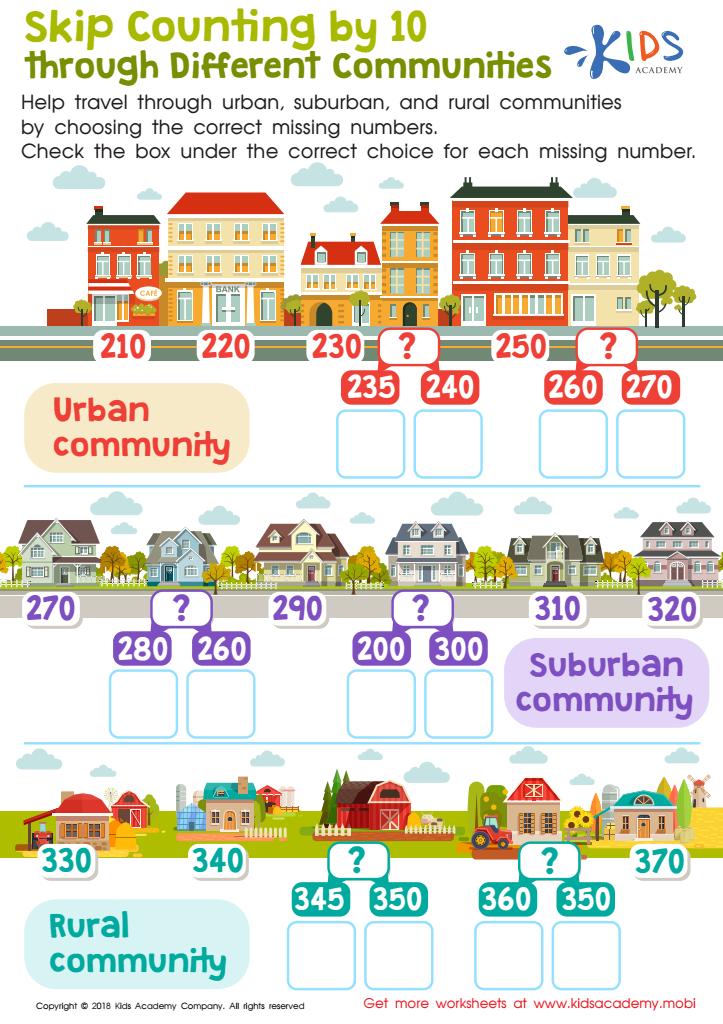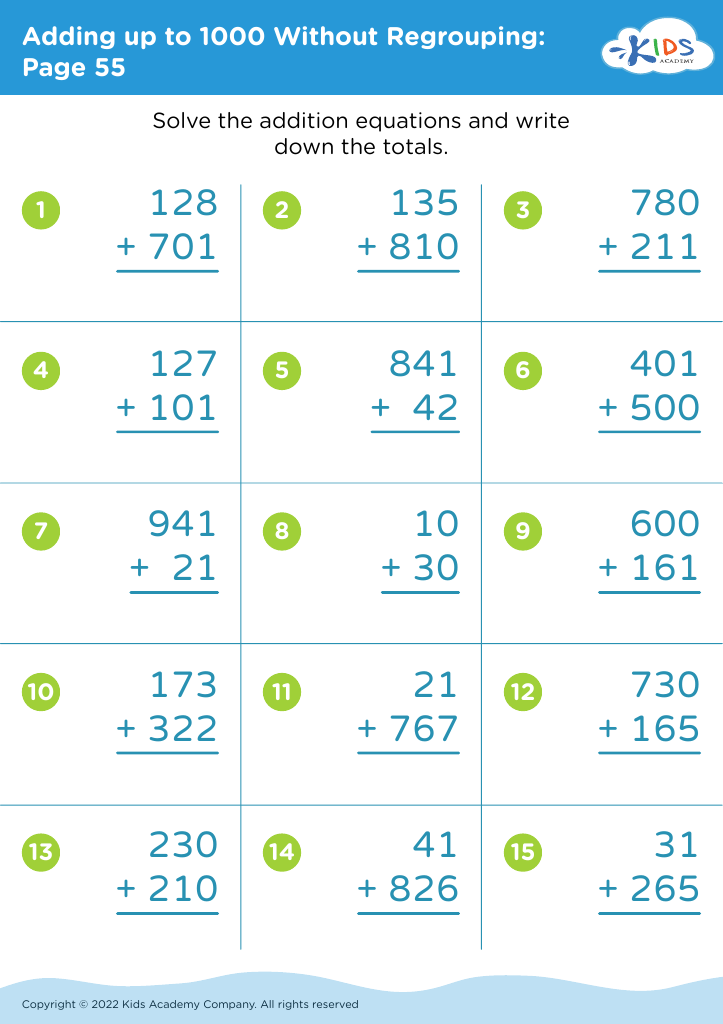Building vocabulary Math Worksheets for Ages 7-9
3 filtered results
-
From - To
Enhance young learners' math vocabulary with our engaging Building Vocabulary Math Worksheets for Ages 7-9! Designed to support children's growth in mathematical language, these age-appropriate worksheets feature fun activities that encourage a deeper understanding of key concepts. Each worksheet introduces essential terms and phrases, helping students to express their ideas clearly and confidently. With a variety of exercises including word problems, definitions, and matching tasks, learners will develop their vocabulary while honing critical thinking skills. Perfect for both classroom practice or at-home learning, our worksheets make math language not just fun but educational! Empower your child's math skills today!


Skip Counting by 10 through Different Communities Worksheet
Building vocabulary in math for children aged 7-9 is crucial for their overall academic success and cognitive development. At this stage, students are transitioning from basic arithmetic to more complex mathematical concepts, including fractions, geometry, and problem-solving strategies. A strong math vocabulary helps children articulate their thoughts, understand instructions, and make connections between different concepts. When educators and parents emphasize vocabulary development, they aid in fostering critical thinking and analytical skills that will benefit students beyond early education.
Additionally, a robust math vocabulary enhances students' reading comprehension abilities, making it easier for them to process word problems and texts related to math. This is essential, as many students struggle with math not because they lack skills, but due to difficulties in language comprehension.
Engaging in activities that encourage vocabulary growth, such as using specific math terms in conversations or incorporating math games, makes learning enjoyable and memorable. Building a strong math vocabulary foundation lays the groundwork for future mathematical learning, reducing anxiety around the subject and promoting a positive attitude toward math in general. Ultimately, by prioritizing vocabulary development in math, parents and teachers equip children with essential tools for lifelong learning and success in various fields.



 Assign to My Students
Assign to My Students




















